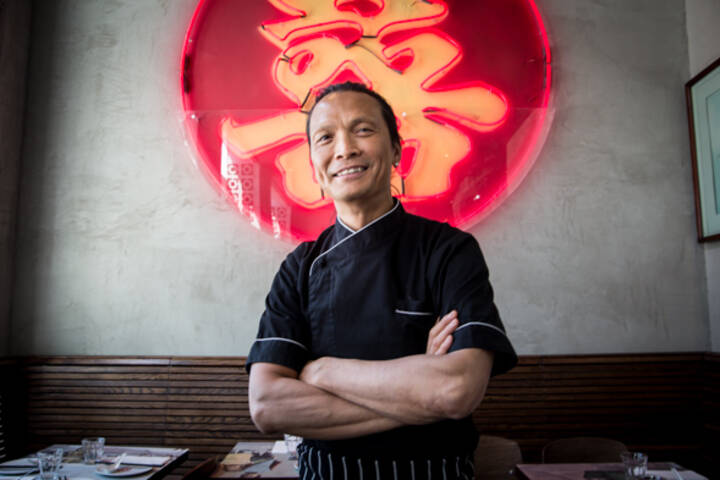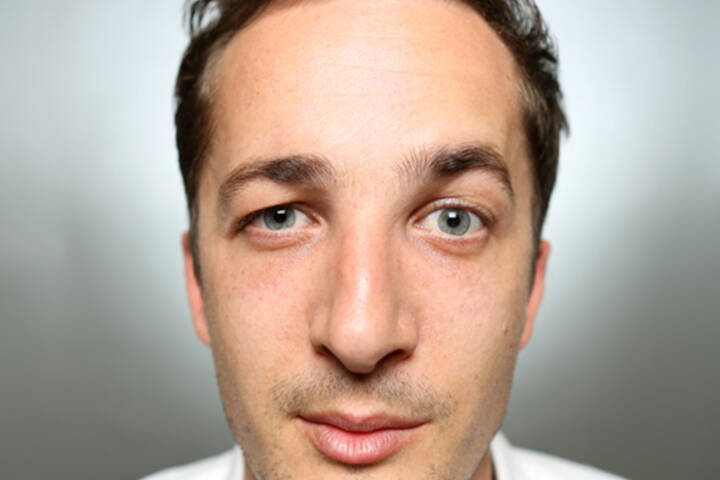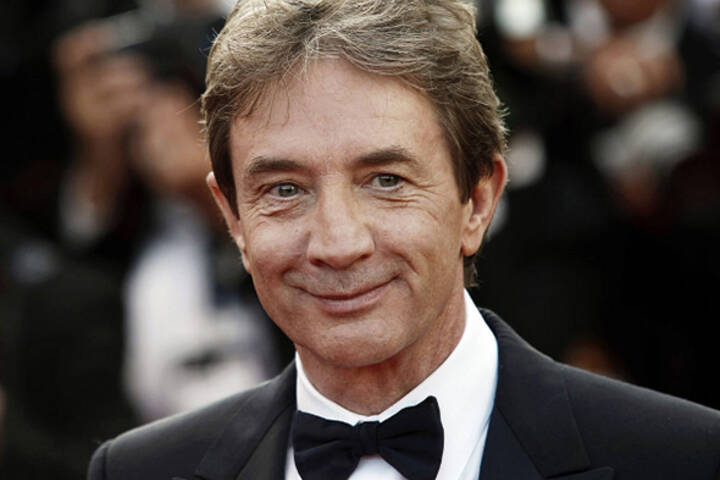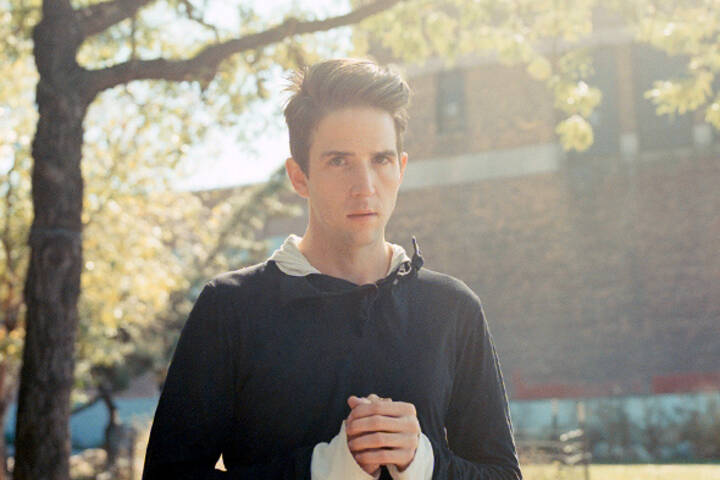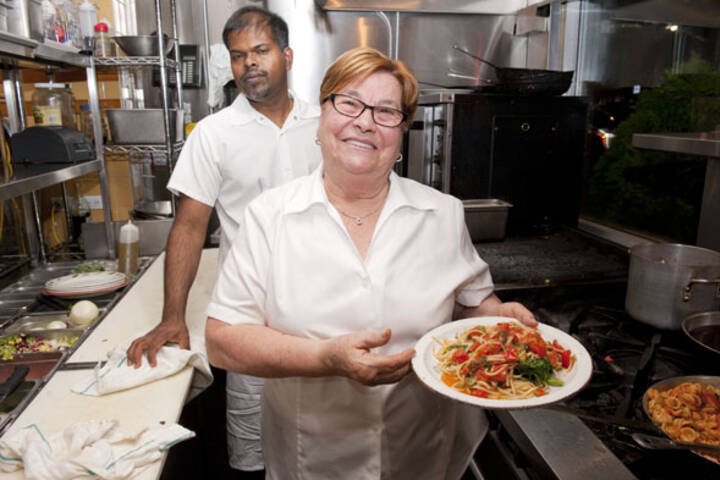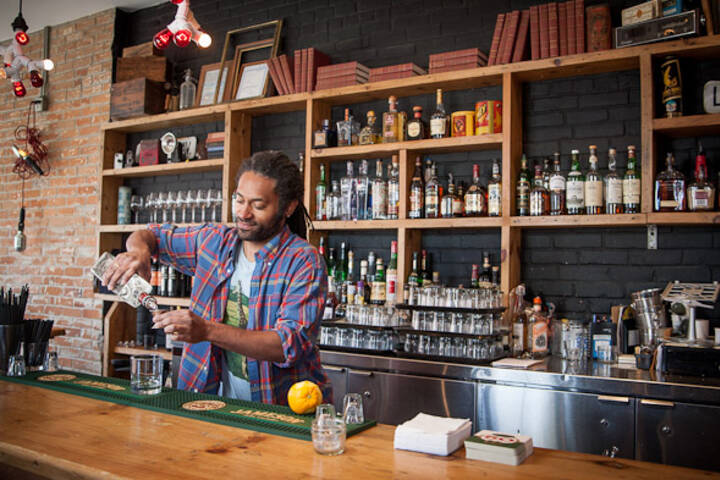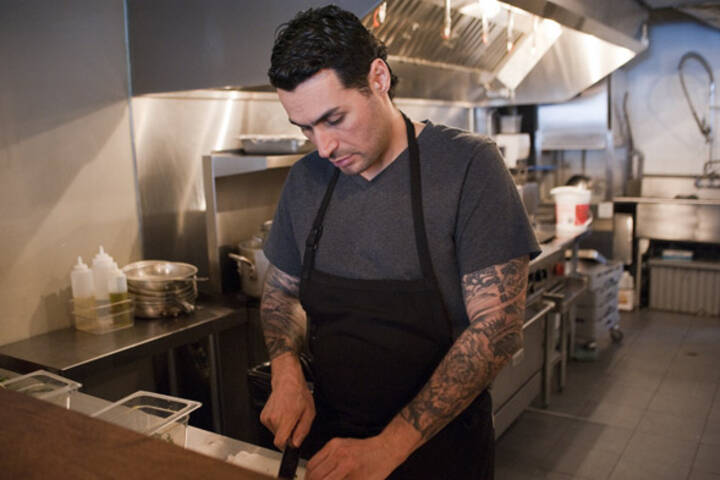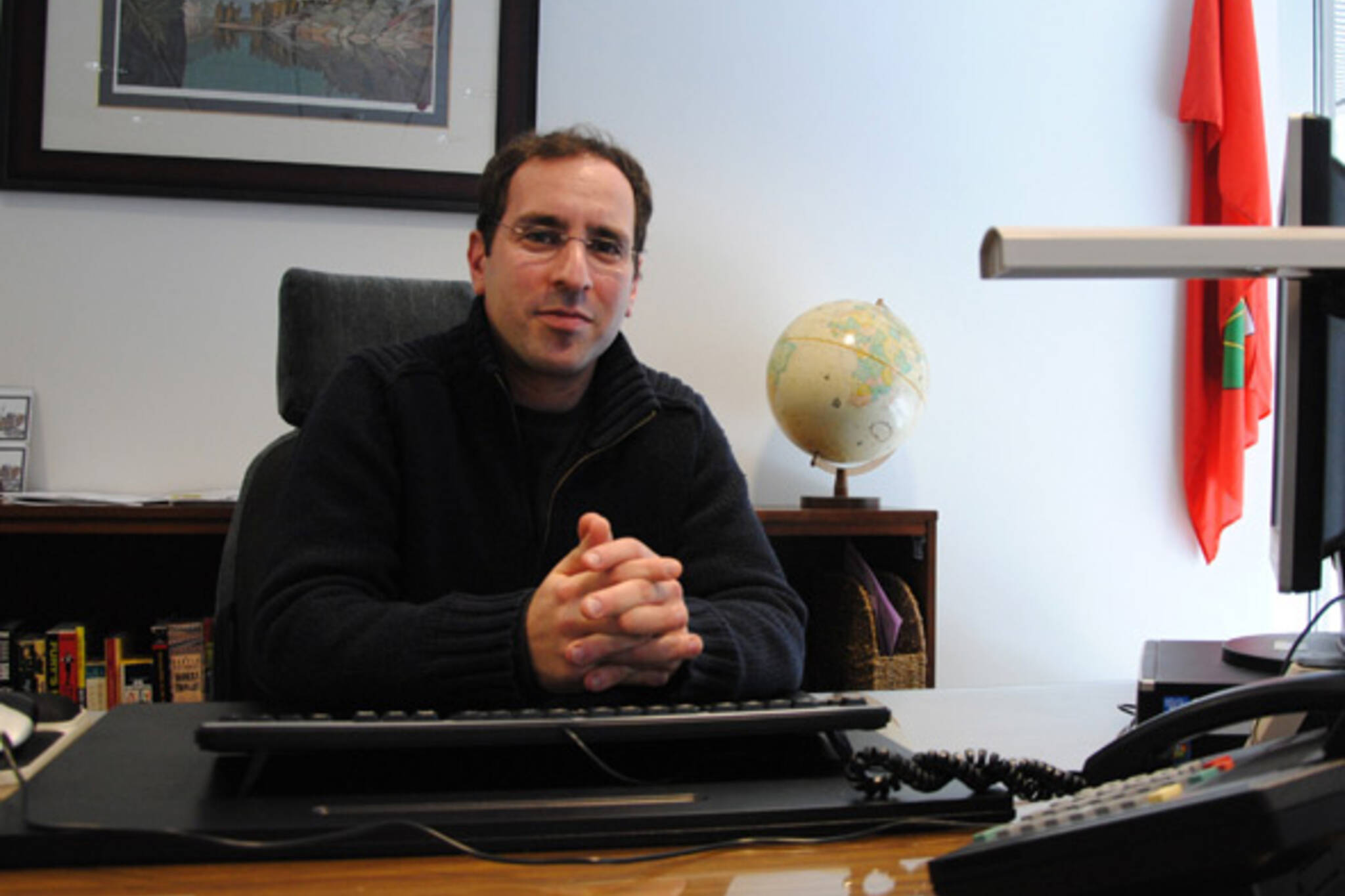
Toronto through the eyes of Councillor Josh Matlow
In October 2010, Josh Matlow was elected to replace veteran councillor Michael Walker in Ward 22. Matlow, a 35 year-old former school board trustee, comes to city council to represent one of Toronto's wealthiest and most populous wards. It is also one of the few wards where overall work trips by transit exceed 40 per cent.
Matlow decisively beat Councillor Walker's former executive assistant, Chris Sellors, with 52 per cent of the vote versus Sellors' 35. The campaign was largely fought over the Eglinton LRT, which Matlow supported and Sellors wanted turned into a subway.
Matlow has been described as "media-savvy," a "rogue," and "outspoken," and was involved in several controversies before being elected to city council. In May 2009, Matlow strongly criticized a school board decision keeping Vaughan Road Academy open after a suspected swine-flu case was discovered there. Unsuccessfully, the board put forward a motion of censure, arguing Matlow's comments unfairly damaged the reputation of the TDSB.
In early 2010, Matlow said the TDSB was "insane" and charged it with going on a "drunken spending binge" when it planned a one-day conference billed at $345,000. George Smitherman's former campaign manager, Bruce Davis, who was the TDSB's chair at the time, said his comments were out of line and called for a formal reprimand. The board eventually backed down after Matlow refused to apologize.
Among the initiatives Matlow hopes to promote at city council are a Toronto museum, measures to better protect heritage buildings, the creation of a task force on gridlock, and the completion of a rapid transit link to the airport.
Matlow writes a weekly column for the Toronto Star and appears every Sunday on Newstalk 1010. He studied political science at Concordia University and later went to theatre school in Paris. He has worked as an environmental activist, journalist, and has done improv comedy as well.
In the fourth installment of our interviews with Toronto's new city councillors, I sat down for a chat with Matlow at his office last week. Here's what we talked about:
You've been a city councillor for over two months now. What's an average day like for you?
There is no average day, that's the first thing you learn...There will always be a phone call that will be about something you need to deal with that day, or there will be somebody that needs help and you need to find a resolution. So if a councillor is wise they create space to attend to those unexpected issues.
That being said...there are meetings with other councillors to discuss our respective motions, initiatives we care about, to ask each other for support, and to explain why we care about certain issues and why we want their support.
Most days I'll come in at around 9:00am and start my day reviewing my email and catching up on phone calls and correspondence. Then I'll most likely have someone walk into my office, whether it's a colleague or staff announcing something that's going on...Then many evenings I'm holding a town-hall meeting on a certain subject...
Sometimes we just go knocking on doors arbitrarily just to get a sense of what people are talking about, especially before council meetings to just ask them about some of the big issues on the agenda, without editorial, just to get a sense of what people are thinking about, and how informed people are on the issues. It gives me a better sense of if I'm reflecting their priorities when I'm voting.
Admittedly, I have very little [private time], but I do make time. My wife and I are best friends and I find it very grounding to spend time with her and the rest of my family and friends. So I create that space but obviously there isn't as much as there used to be.
How would you rate Rob Ford's job as mayor so far?
To be honest, there are two answers to that question. How has he done as mayor in terms of getting through his agenda? He's been incredibly successful. He's been very deliberate. His staff and the people around him have all worked on ensuring there's a very clear agenda that's been executed step-by-step.
[However], I feel the process has been a little too choreographed for a democrat's sensibility. A lot of the votes are whipped. When I've watched the budget committee meetings, most of them seem like the decisions have already been made and they go through the exercise of having debates. What typically happens is that the budget committee, who are essentially selected by the mayor, vote on how they believe the mayor would like them to vote...I'd like to, in fact, not know where we end up at the end of the discussion.
Once in a while the committee will accept a recommendation if it doesn't conflict with their agenda, but typically they won't take carriage if it doesn't fit in with where they want to go.
How do you feel about the 2011 budget's expedited timeline?
I don't like it. I'd prefer a far more open and inclusive process...I'd submit that it's difficult, if not impossible, for any human being, politician or not, to fully comprehend every single issue in [the budget]...I want to actually understand what I'm pressing YES or NO about when I vote. I also want Torontonians, the very people who are going to be subject to the decisions we make, to feel they're involved in the discussion, and I don't feel they are.
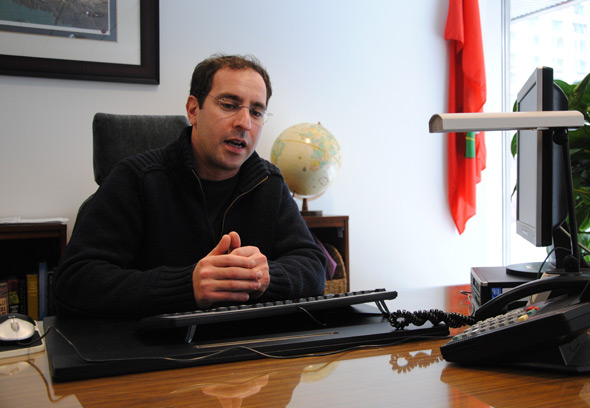
Are there any disadvantages to being a new councillor?
It's similar to anyone who's been the new kid at school and come into school at a late grade and there have already been cliques formed and in-jokes and people sort of know the system. As you learn about how the processes, systems, and by-laws work then you might have more of an opportunity to affect change.
That being said, I was fortunate to be a school trustee before becoming a councillor, although this place was new to me, some of the processes and systems were at least familiar.
Don Cherry's introduction to Rob Ford was strongly partisan. Does it reflect the atmosphere in City Hall?
Not to that degree. That speech was angry and provocative and set a very sad tone for a day that should have been a very wonderful day. For us newbies, that was a day when our families, our parents, and friends where there. It was supposed to be a very special day for those who had just been elected and a day to celebrate democracy in Toronto. Don Cherry basically went up and slapped that whole thing in the face and it was pretty awful.
It is a polarized council. I do see a very distinct right-wing and left-wing. However, there are a number of us who some people call "the middle"--I really just try to be thoughtful--and who really do try to take every issue on the merits of the arguments...So I think over time you'll see the centre expand as the [2010 municipal] election goes further and further into history. That's my hope.
What do you think of Rob Ford's transit plan?
I haven't seen a transit plan from Mr. Ford [laughs]. I haven't seen a plan. I've heard a suggestion that Mr. Ford would like to build a subway on Sheppard--this is not a left or right-wing issue--and I don't believe building a subway on Sheppard is intellectually honest.
There's no commitment of capital funds to build the thing in the first place, there isn't enough population or density along that route to merit the ongoing operating funds that it would need. And frankly, when I say it's not a left or right-wing issue, I think the left on council have a more fiscally conservative perspective on transit than the right when it comes to the Sheppard line.
So, I haven't heard of "a plan," I've just sort of heard ideas that have been thrown out during the campaign...
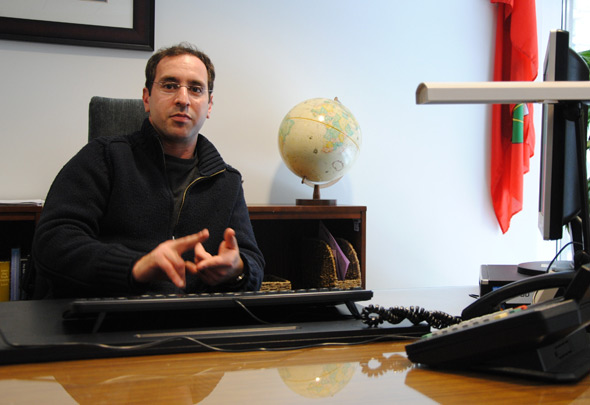
What's the future of Transit City?
The Mayor and those who are on his team seem to have the majority of council, so I don't believe Transit City will be able to move forward the way it was planned.
That being said, I think the Eglinton LRT is the most realistic proposal, because it's both an LRT and mostly underground, so politically it can be supported by Mr. Ford. The underground component of it is already fully funded by Metrolinx. So it's a no-brainer to begin with Eglinton and then start incrementally expanding transit after that...
But what I think people, who are left or right-wing or downtown or suburbanite, can agree on is that we cannot have another generation of bickering and fighting over transit and see nothing done. So I'd prefer instead of seeing a fight over trying to get the entirety of Transit City approved now--or just building subways--to find projects we can agree on and get them going then continue debating what comes next.
You supported asking the province to declare transit an essential service. Do you worry this might cost the city more since arbiters tend to side with unions?
I don't worry--I think there's a possibility that it might. What I heard very clearly from residents was that that's a price they'd be willing to pay. I didn't hear from thoughtful and informed residents that they supported making the TTC an essential service because they were anti-union. There's a legitimate feeling out there that transit is part of the basic infrastructure of moving around this city. Whether you are pro-transit or pro-car you would agree that transit supports all our lives.
Also there are a lot of people who rely on transit everyday to earn their livelihood or to get to the hospital, get to work, and do everything they need to do in their lives. So when it comes down to it we need to draw a line in the sand and say transit is something we need to know will be reliable and will be there for us every day...
You supported the repeal of the Vehicle Registration Tax. How should the city make up for the lost revenues?
Collective agreements are where we need to have a conversation about what is more reasonable. There's been a feeling in Toronto for a long time, amongst many, that it's hard to justify the public sector getting automatic wage increases every year when other workers who run variety or hardware stores, etc., don't get that, and frankly, they're the ones who, out of their own personal and commercial property taxes, end up paying for those salaries.
The other thing we desperately need to do is have a new arrangement with the provincial government with regard to the many services that were downloaded many years ago. A new arrangement of who funds the operating [budget] of our transit system...
What's your position on the Land Transfer Tax?
I hate it...but let's put it this way: I think with the vehicle tax we'll be able to find an offset, but we'd have another $200 million gap if we repealed the Land Transfer Tax, so we'd have to do it thoughtfully and not overnight with no idea how to supplement the tax, but I want to find a way to do it.
The reason is because if you're a young family in your 20s or 30s and trying to save up for your first home, getting whacked with a tax of sometimes ten, eleven, or twelve thousand dollars that you can't pay incrementally, only upfront, makes it impossible for you to enter the housing market. That's an injustice.
It goes to the other extreme of life, where you're a senior citizen and you're on a fixed pension and you want to downsize from a house to a condo it will also take a big chunk out of a very tight financial situation you might be in. It's not a progressive tax. It's a regressive tax and it targets a few people in our city, and typically the very few people who can't afford it.
Should the city be contracting out garbage collection services?
I think we should have an open tender and the unions should be able to compete as well. But the unions lost the confidence of a lot of Torontonians during the strike. I heard in my ward--which is a moderate, mid-town ward, and whose vast majority of residents voted for George Smitherman over Rob Ford--but the consistent message I heard was that they lost confidence with the unions during the garbage strike.
It's completely fair to consider open tendering and allow the unions to compete to allow the unions to provide the best service for the best price. But I think there should also be clauses to ensure workers are compensated adequatelyÂŹ--exactly what that number is can be discussed. We shouldn't do it in a way in which we just say "ok, who cares about the people who work for us, we're privatizing everything." So it shouldn't be thoughtless...but at the same time, no one group should have a monopoly over services...
What are Toronto's best qualities?
Our best qualities are that we're largely a very civil society...there're lots of opportunities for people, and our diversity...[which] we celebrate in a way few cities do...You go to other North American cities and they'll look at Toronto as a place from which they can learn how to work together...
What's our city's worst quality?
I think one of the worst qualities about Toronto is some of our architecture--the slab, awful, concrete buildings we've accepted as the norm over generations. There's very little focus on design. In Manhattan, for example, there's almost an egoist contest over who can build a more beautiful building. In Toronto, it often comes down to how you can do it quickly and cheaply. We've got to put far more focus on design. It affects the quality of our lives. When you move into a house what's the first thing you do? You want to create an environment that you're happy in and affects you positively. We should treat our city the same way...
Latest Videos
Latest Videos
Join the conversation Load comments
